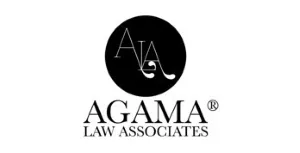- in United States
- with readers working within the Law Firm industries
- within Media, Telecoms, IT, Entertainment, Transport and Technology topic(s)
Every founder, at some point in the journey, faces this quiet but pivotal question: Is this a compliance checkbox, or is it a strategic move? It rarely feels urgent or important. Most of the compliance appears as bottlenecks thwarting progress. And that's exactly where the danger lies.
The Quiet Shift in Founder Conversations
In the last few months, a defining pattern has emerged in our conversations with startup and growth-stage founders. Compliance is no longer just a legal hygiene factor. It's becoming a brand narrative, an investor filter and, increasingly, a tool of competitive differentiation.
One founder we recently spoke with – who was closing a bridge round from a seasoned VC – shared how the diligence list included not just Registrar of Companies (RoC) filings and board minutes, but also:
- Historical employee equity grant documentation
- IP ownership tracking
- Vendor indemnity clauses in legacy contracts
The twist? The fund's prior portfolio had faced a $3m clawback because of faulty IP chain of title in a SaaS deal. The result: more aggressive diligence filters, even in smaller deals.
And just like that, what looked like "boring paperwork" became the reason a founder's round almost didn't close.
The New Legal Leverage in Fundraising
For many first-time founders, especially outside metro ecosystems, compliance still feels like something to be "managed." But investors – especially institutional capital – are increasingly seeing it as a signal. Their thought is not just restricted to: "can this team execute?"
Their pressing concern now is: "can this team be trusted with fiduciary responsibility?"
And no founder wants to be seen as a red flag because of avoidable oversights like:
- Board resolutions missing for convertible notes
- Employee stock option plans without proper vesting schedules
- IP that's in the name of a freelance vendor, not the company
From a legal standpoint, these are fixable. But from a capital and reputational standpoint, they create chilling uncertainty. And in competitive rounds, uncertainty kills deals.
What the Data Says
According to a 2023 TiE report on seed-stage investments in India:
- 28% of term sheets are retracted or materially revised post-diligence
- The top 3 reasons? Cap table inconsistencies, improper IP ownership, and historical non-compliances
- A recent founder-focused survey conducted by SaaSBoomi and Blume Ventures highlighted that:
- 71% of institutional investors view proactive legal readiness as a differentiator
- Startups that had structured documentation and clean compliance histories were 40% more likely to close rounds within 60 days
This is no longer theory. It's operational risk turning into capital opportunity, or leakage.
Legal Hygiene as a Business Advantage
We have long stood by the value that legal systems are not just about "keeping your house in order." They're about extending the walls of trust. Trust starts at home: from employees it flows to vendors , then to investors, and eventually the public.
When structured well, legal documentation:
- Prevents partner misunderstandings
- Locks in founder rights during scale
- Creates faster vendor onboarding cycles
- Becomes a ready-to-share diligence folder for strategic conversations
One fintech founder we know likened it to "building the waterproofing before monsoon: invisible when it's dry, but invaluable when the rains come."
What Founders Can Do Today
Founders often ask: "What's the minimum I can do right now?"
A response in sync with the times: "flip the question. Ask instead: what can I fix now that will save me 10x pain and cost later?"
Here's a short list of high-leverage actions:
- Run a legal health check across cap table, IP, and contracts
- Standardise vendor and employment contracts with fallback clauses
- Create a central repository of key resolutions, filings, and approvals
- Identify "silent risks" such as informal advisors with claim potential
- Document founder roles, vesting, and exit contingencies clearly
These aren't "legal" moves. They're founder foresight.
The Mindset Shift
Compliance instead of being viewed as "make-up" or a necessary evil, needs to be approached from a quality stand point, just as you would do for your products / services. Increasingly, compliance is becoming the substrate for confidence, with internal and external stakeholders.
And when founders embrace legal structuring as a part of their business muscle – not a cost center – there is a tell – it changes everything – be it the speed of negotiations, the quality of investors and/or the sustainability of scale.
The content of this article is intended to provide a general guide to the subject matter. Specialist advice should be sought about your specific circumstances.


